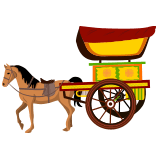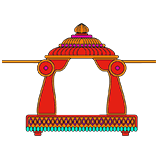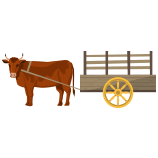Nakshatra
Nakshatra or stars are beautiful celestial bodies in the night sky that have astrological significance attached to them. They represent the lunar mansion in the Vedic astrology, according to which they can be individual stars or constellations spread across the night sky. Ancient seers identified 27 prominent stars and divided them across 12 constellations and 360⁰. Hence, each star spreads for approximately 13⁰ 20′ on the entire horizon. The moon travels in each star, thus completing a lunar month in 27 days, laying the foundations for Vedic Astrology.
Nakshatras
According to ancient texts, nakshatra is derived from the word Naksh, meaning worship. The entire word in itself means indestructible. The earliest mentions of the nakshatras are in Rig Veda, but the complete list of 27 stars finds their mention in Yajurveda and Atharva Veda. Each nakshatra’s path has four padas, which spans to 3⁰ 20′ each.
Significance of Nakshatra’s
With each nakshatra having its ruling deity and characteristic powers, nakshatras play a defining role in determining the individual’s character. In each pada, the nakshatra exhibits a unique characteristic.
Determining your Nakshatra
Determining the nakshatra of an individual depends on the exact time, date, and place of birth. Once the astrologers know the required details, they check the moon’s position on the given date and time. The moon placement tells them the birth star of the individual. Summing up, an individual’s birth star is the one with the moon’s presence during the baby’s birth. The horoscope gives additional details such as the placement of various planets relative to the sun and moon position during the birth hours. The effect each of these planets has on the individual’s living, and the characteristics of the birth-star will provide insights into the individual’s general well-being.
27 Stars as mentioned in the Veda’s
- Ashwini
- Bharani
- Krittika
- Rohini
- Mrighasira
- Ardra
- Punarvasu
- Pushya
- Ashlesha
- Magha
- Purva Phalguni
- Uttara Phalguni
- Hasta
- Chitra
- Swati
- Vishaka
- Anuradha
- Jyestha
- Moola
- Purvashada
- Uttarashada
- Sharavan
- Dhanishta
- Shatabisha
- Purvabhadra
- Uttarabhadra
- Revati



























